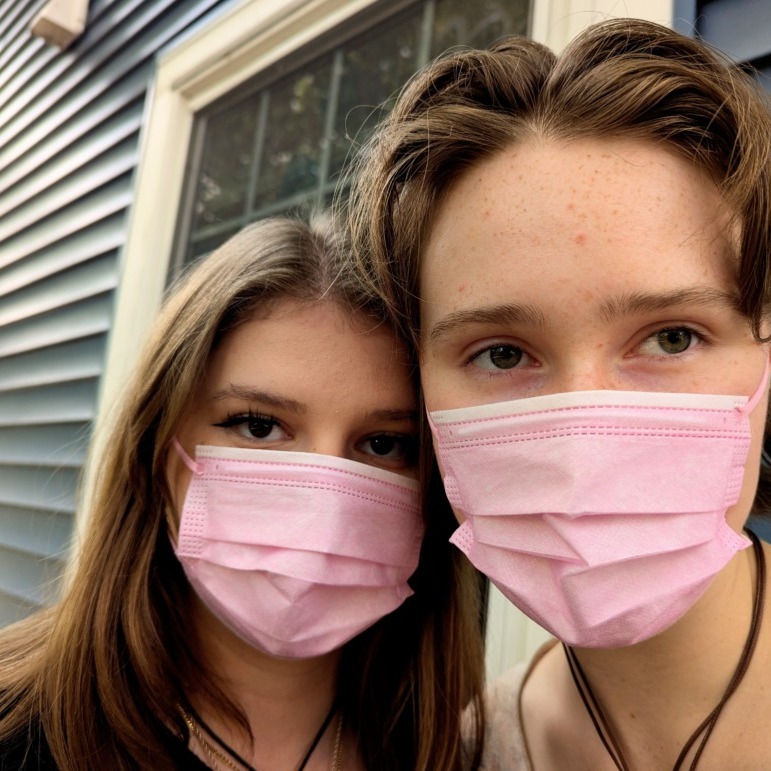
We can’t forget about COVID-19
The lessons we learned then are just as relevant today
Congrats, everyone. We can finally say we made it through a global pandemic — and with only a few respiratory issues and flashbacks when buying toilet paper to prove it.
The same way my dad swears his only toys were sticks and rocks, or my grandparents claim they walked miles to get to school every day, Gen Z gets to boast that we survived a plague.
No one seems boastful right now, though. Sometimes it feels like the subject is taboo.
I’ve heard the phrase “now that COVID is over” or “after the pandemic” more times than I can count, and it started only days after the government lifted restrictions. As soon as heads peeked out of front doors and people crept back to civilization, mask-wearing dwindled.
Now, two years after the World Health Organization declared COVID-19 was no longer a pandemic-level threat, I barely see anyone in a mask, I never hear about the number of cases in each province and I almost forget to line up for my booster in the fall.
I was therefore shocked to learn that COVID-19 levels are rising.
The percentage of positive COVID-19 tests in Canada is trending upward. Although the majority of Canadians currently affected are 65 years or older, or immunocompromised, there is a higher risk of COVID-19 cases climbing now that schools are back in session across the country.
Additionally, scientists continue to find new variants, which risk significant increases in infections as well as new symptoms.
Yet no one seems to be talking about it.
Have we forgotten about COVID-19?
I get it, people have enough to worry about. There seems to be a forever-escalating, scarier storm to turn our attention and anxiety toward. Plus, with vaccines and our good friend herd immunity, there is less risk now than there was a few years ago.
But it’s not necessarily the virus itself I’m worried about. I’m more afraid of what silence on the subject could mean.
Now, more than ever, we need to remember the lessons taught by the pandemic — what we learned when it seemed like the world was ending.
Prioritizing finding accurate information is still just as crucial, as the current onslaught of misinformation and disinformation seems more relentless than the fear-mongering of 2020.
As we learned then, educating ourselves and others is essential, and referring to the experts in every field is the only way to maintain truth — and sanity.
The pandemic also shone a light on the inequalities that still exist in our country, inciting many calls for change.
During the Black Lives Matter movement, Canadians came together to protest the systemic inequality that continues to affect millions of people in Canada and around the world.
Since then, racism, misogyny, homophobia, transphobia, bigotry and radicalization have only continued to grow.
“There is a horrifying rise in hate crimes in our communities,” read a recent news release from Canada’s Department of Justice.
The emphatic call for equality and solidarity that Canadians displayed throughout the pandemic must continue. Caring for others is the only way to maintain our humanity.
I’ve experienced the consequences of people putting themselves before others, like those who disregarded COVID restrictions. Having immunocompromised family members and friends who worked in nursing homes during the pandemic, I’ve seen first-hand how one person’s carelessness can be detrimental to many.
There is no mistaking it: a lack of empathy is dangerous. Indifference can become deadly when facing any injustice, not only a virus.
We need to care for each other — actually care, even for issues in which we are not directly affected — to make sure everyone is safe.
During the pandemic, that meant getting vaccinated and wearing masks. Now, in the face of economic crises, worldwide political unrest, the climate crisis, threats to freedom of speech, the ongoing genocides in Gaza and Sudan, and so much more, it means protesting, donating, researching and listening.
It means empathy is everything.
We shouldn’t forget about COVID-19 because we shouldn’t forget about these lessons we learned the hard way.
The same way it’s tempting to act like the pandemic never happened, it may also feel easier to pretend there is nothing bad going on in the world.
But the hard times are not over because we stopped wearing masks.






